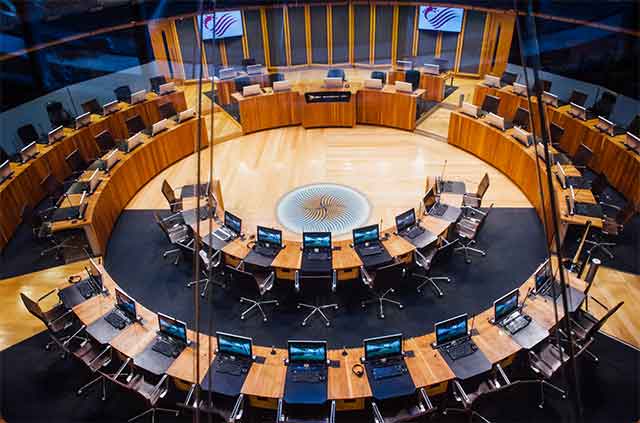Two health boards will face greater scrutiny from the Welsh Government due to serious concerns about their finances, Wales’ health secretary announced.
Jeremy Miles confirmed Swansea Bay university and Powys teaching health boards will be escalated to level four for finance, strategy and planning.
This is the second highest level on the Welsh Government’s new five-point intervention scale, one short of special measures.
Mr Miles warned: “We need to increase the level of support because of the growing financial deficits both organisations are reporting.”
He said Swansea Bay will remain at level four for performance and level three for maternity.
He raised improvements in Cwm Taf Morgannwg’s child and adolescent mental health services (CAMHS), which will move to level three after meeting de-escalation criteria.
‘Not a punishment’
In a statement on November 5, Mr Miles said Cwm Taf has also made significant progress on finance but will remain at level three to ensure improvements are sustained.
The health board stays at level four for urgent care, cancer and planned care.
He confirmed that all seven major health boards remain in some form of intervention, with no changes to the escalation levels of other NHS organisations.
Mr Miles said Betsi Cadwaladr remains in special measures, adding a progress report has been published and the de-escalation criteria the board must meet have been agreed.
He told the Senedd: “These decisions have not been taken lightly.
“Escalation is not a form of punishment, it is the best way to support these NHS organisations to improve the quality of service and care that people receive in Wales from the health service in their local area and, ultimately, their outcomes.”
‘Political games’
Sam Rowlands, the Conservatives’ shadow health secretary, was deeply concerned about Cwm Taf CAMHS being de-escalated, warning of waiting times doubling in recent years.
Mr Rowlands, who represents North Wales, raised concerns about Betsi Cadwaladr moving out of special measures before the last Senedd election, only to be plunged back in after.
With the next election looming in 2026, he called for assurances this will not be repeated.
Mr Rowlands warned: “The appearance of escalation and de-escalation being played around with for political expediency … damages confidence in this place … the lives and health of people across Wales are far too serious for those party political games to be played.”
Mabon ap Gwynfor agreed, saying: “There is understandable concern we will face a repeat of expert advice being overruled in favour of short-term, political calculations.
‘Grimly familiar’
“Full government transparency on the rationale for moving health boards up or down the escalation pathway is, therefore, essential.”
Plaid Cymru’s shadow health secretary described the update on escalation arrangements as a “grimly familiar situation of the normalisation of failing standards”.
Mr ap Gwynfor, who represents Dwyfor Meirionnydd, raised concerns about more escalation layers being added this year, “giving the impression of goalposts being shifted”.
He pointed out that Welsh Government guidelines state special measures should only be implemented in exceptional circumstances.
He said: “But given that my local health board, Betsi Cadwaladr, has been in this position for two thirds of its entire existence, there is clearly nothing exceptional about the suboptimal performance of services in north Wales.”

